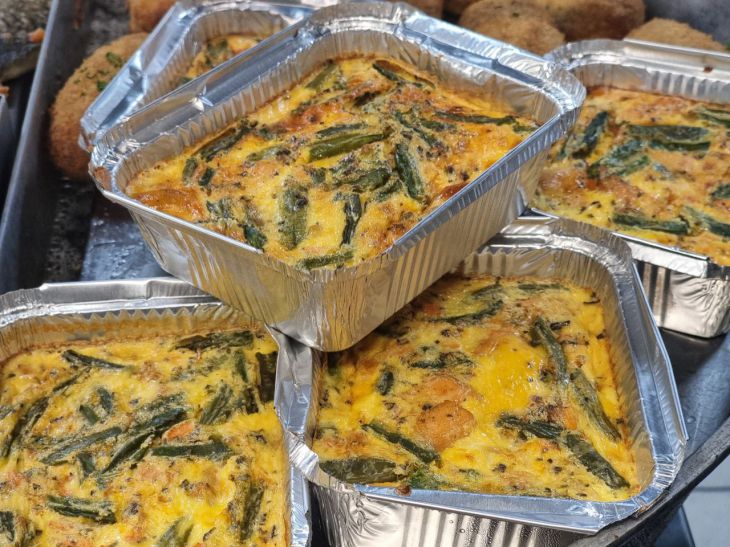It seems like you're doing everything right: fresh ingredients, thoughtful menu, gentle cooking.
But there is one detail you may be missing.
Aluminum foil and dishes release metal ions when in contact with acidic or salty dishes. For example, lemons or tomatoes baked in foil “draw out” up to 3.5 mg of aluminum in 30 minutes — that’s 50% of the daily requirement!

And if you cook marinated meat in an aluminum pan, the concentration of the metal increases 4 times.
Toxicological studies confirm that regular exposure to aluminum is associated with the risk of developing neurodegenerative diseases such as Alzheimer's disease.
But the problem is not only with foil. Many people use aluminum baking trays or disposable grill forms. When heated to 160 ° C, they release aluminum oxides, which settle in the lungs and kidneys.
The European Food Safety Authority (EFSA) has established that the safe dose of aluminum is 1 mg per kg of body weight per week. But fans of foil and fast food, which often use aluminum packaging, easily exceed this norm by 2-3 times.
Where else is aluminum hiding?
- Antiperspirants. Aluminum salts block sweat glands but penetrate the skin.
- Medicines: Antacids for heartburn contain aluminum hydroxide, which is dangerous if taken for a long time.
- Drinking water: In areas with old pipes, water may be contaminated with metal particles.
Lifehacks for safe cooking
Check the cookware with a magnet. Aluminum is not magnetic - if the bottom of the pan is attracted, it is steel with a safe coating.
Use lemon as an indicator. If you cook with lemon and it tastes metallic, the cookware is not suitable.
Store food in glass. Acid sauces (tomato, soy) in aluminum containers oxidize in 2 hours.
What can replace foil?
Replace foil with parchment paper or silicone baking mats.
For stewing and storing sour dishes (such as sauerkraut), use glass or ceramic containers.
If foil is necessary, wrap the food in a lettuce leaf - it will act as a barrier between the food and the metal.








